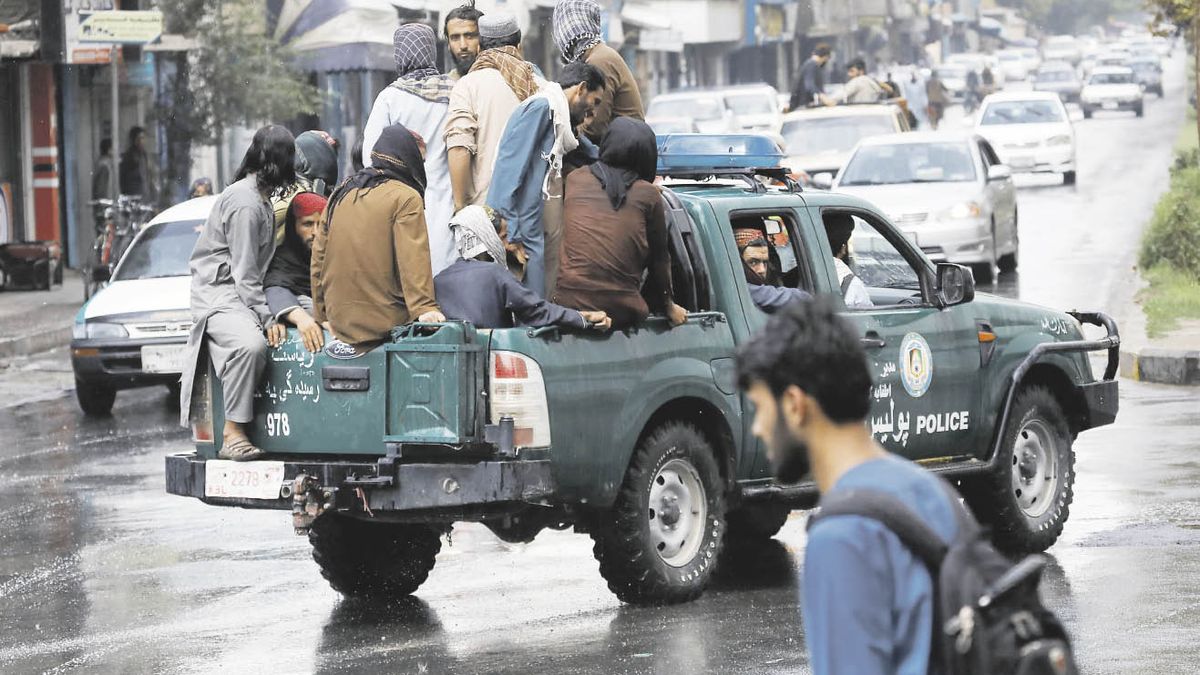In this context, “there is a part that promotes what it considers reforms, and another part that seems to think that even these few reforms are too many,” explains Ibraheem Bahiss, Afghanistan analyst for the International Crisis Group.
Some leaders have boasted of a new kind of regime, but to many observers the changes so far are superficial. Above all “symbolic” signs to cajole the West, which has financed the country with foreign aid in the last 20 years, and not be isolated from the world financial system.
Technology or public relations are part of the daily lives of Kabul officials, cricket matches are applauded in stadiums filled to the brim, and citizens have access to the internet and social networks.
The daughters can go to primary school and the women journalists interview government officials, something unthinkable during the first Taliban mandate between 1996 and 2001.
“There are some cases where we could point to a political evolution but let’s be clear, we are still in the presence of an organization that refuses to leave behind some very retrograde dogmatic views,” says Michael Kugelman, an Afghanistan specialist at the Wilson Center think tank. .
Many secondary schools for girls remain closed and women are excluded from public employment. Music, shisha or games are strictly controlled in conservative areas, while demonstrations are repressed and journalists are regularly threatened or arrested.
Furthermore, the new authorities ignored Western calls for an inclusive government.
terrorists
The assassination of the al Qaeda leader in Kabul last week has again raised suspicions about the Taliban’s commitment to cut ties with extremist groups.
In March, its paramount chief Hibatullah Akhundzada surprised locals and strangers alike by annulling the announced resumption of secondary education for women. Several analysts attribute it to the concern about not giving a feeling of capitulating to the West.
The decision dashed hopes of a reestablishment of international financial flows, drawing criticism even from within the Taliban command in Kabul, some of whom have spoken out against it.
More measures would follow, reminiscent of the Taliban’s brutal first regime, to the lament of foreign diplomats who meet regularly with the government cabinet but have no access to the supreme leader.
And it is from Kandahar, birthplace of the Taliban, that the secretive leader Akhundzada and his powerful circle of former fighters and clerics continue to impose their rigid interpretation of Sharia law.
His advisers claim that the country can survive without foreign income, although all are aware that the release of frozen assets abroad would be a lifesaver.
“We know that the Taliban can be mercantile, but they cannot appear as such,” explains a diplomat. “The decisions he (Akhundzada) has made so far are all based on the opinion of religious scholars,” says Abdul Hadi Hammad, a madrasa director and religious council member close to the supreme leader.
Needs
“The needs of the Afghans are the same as they were 20 years ago,” Mohammad Omar Khitabi, another of his advisers, deepens.
The same argument is brandished by the head of the Ministry for the Promotion of Virtue and Prevention of Vice, Abdul Rahman Tayabi, another collaborator of the supreme leader. “Our people do not have too many demands, as people from other countries may have,” he says.
Hibatullah Akhundzada, whose authority no one dares to dispute, never tires of repeating that the movement needs to stick together. According to some sources, he is trying to maintain a balance to defuse tensions between numerous rival factions.
But anger is already growing within the Taliban movement.
“The Taliban guards are paid late and their salaries are low. They are unhappy,” said a mid-ranking Taliban official in northwest Pakistan, speaking on condition of anonymity.
Many returned to their villages or went to Pakistan to
find another job, adds a second Taliban source.
Attempts to diversify sources of finance with lucrative coal mining have led to infighting in the north, accentuated
by ethnic and religious sectarianism.
These growing tensions may aggravate the conservative retreat within the movement, Kugelman warns. “If the Taliban leaders start to feel real threats to their political survival, will they be able to change?”
AFP Agency
Source: Ambito
David William is a talented author who has made a name for himself in the world of writing. He is a professional author who writes on a wide range of topics, from general interest to opinion news. David is currently working as a writer at 24 hours worlds where he brings his unique perspective and in-depth research to his articles, making them both informative and engaging.




